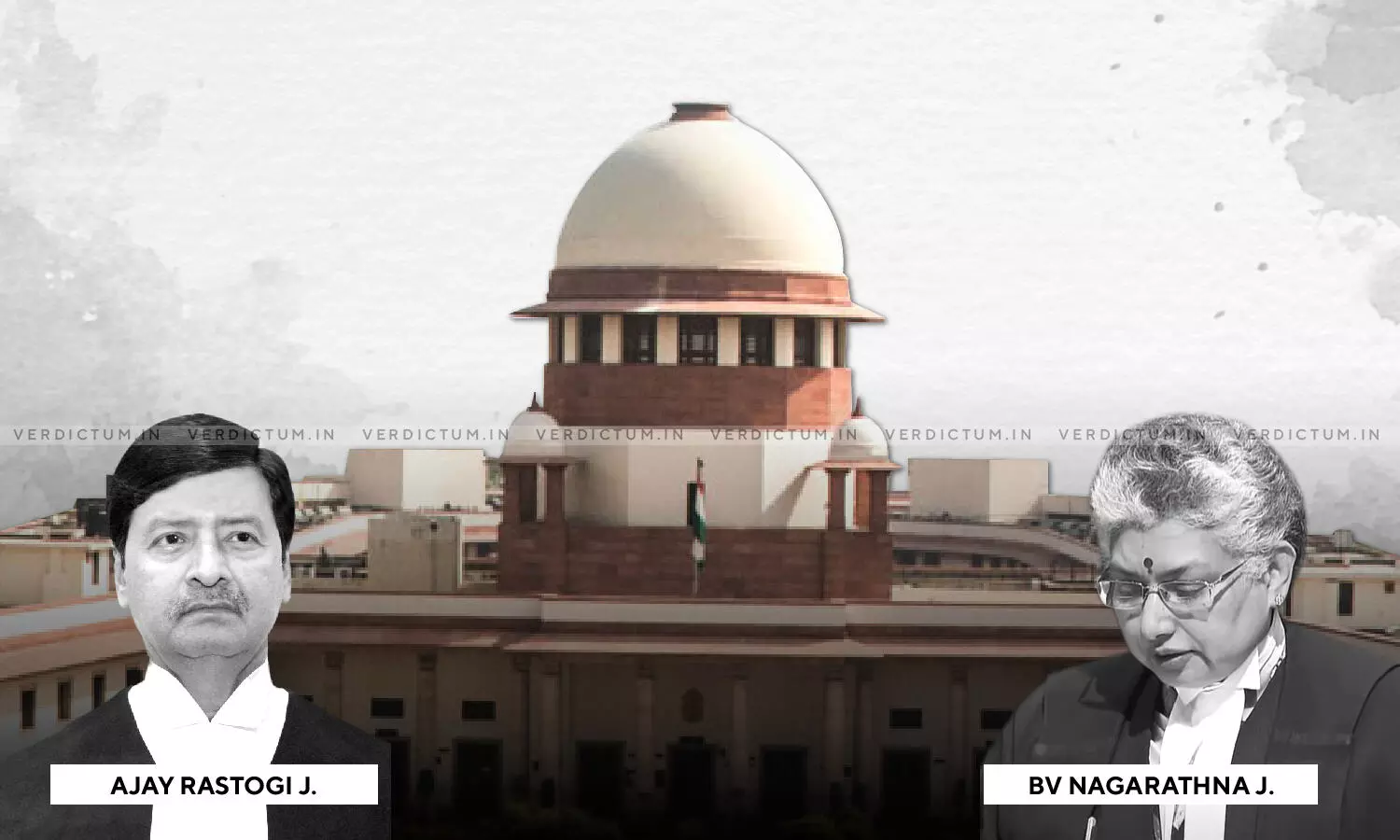
Stock Broker Has To Obtain Certificate Of Registration From SEBI For Each Of Stock Exchange Where He Operates: Supreme Court
 |
|The Supreme Court has held that under the Securities and Exchange Board of India Act, 1992, a stockbroker has to obtain a certificate of registration from SEBI for each of the stock exchanges where he operates.
The bench of Justice Ajay Rastogi and Justice BV Nagarathna set aside the Order of the Division Bench of the Delhi High Court holding that a single registration with SEBI is sufficient even if the stock broker has various memberships and functions from several stock exchanges and, therefore, will have to pay the fee for the initial registration with SEBI.
Advocate Bhargava V. Desai appeared for the Appellant-SEBI whereas Advocate Sahil Tagotra appeared for the National Stock Exchange Members Association.
The Court observed that the Division Bench of the High Court was primarily persuaded with the expression 'a certificate' as referred to under Section 12(1) of the SEBI Act, 1992 and arrived at a conclusion that the expression 'a certificate' signifies a single certificate of registration irrespective of the fact that a stock broker is a member of various stock exchanges and the rules/regulations which are being framed either by the Central Government or the Board in exercise of power under Sections 29 and 30 of the Act, 1992 have to be in conformity with the mandate of the Act, 1992 and that will prevail over the subordinate legislation.
The Court observed that the High Court failed to notice that the expression 'a certificate' is not in reference to any number and has failed to notice that certificate of registration has to be obtained from the Board in accordance with the regulations framed in exercise of power under Section 30 of the SEBI Act 1992.
The Court noted that in this context the scheme of rules framed by the Central Government in exercise of power under Section 29 and regulations framed by the Board under Section 30 of the SEBI Act, 1992 was completely misplaced which indeed has a statutory force.
"A statute has to be construed according to the intent that makes it and it is always the duty of the Court to act upon the true intention of the legislature. If a statutory provision is open to more than one interpretation, it is always desirable of the Court to choose the interpretation which represents the true intention of the legislature.", the Court held.
Thus the Court observed that "…the conjoint reading of the expression "a certificate" as referred to in Section 12(1) of the Act read with the scheme of Rules, 1992 and Regulations 1992, leads to an inevitable conclusion that the stock broker not only has to obtain a certificate of registration from SEBI for each of the stock exchange where he operates, at the same time, has to pay ad valorem fee prescribed in terms of Part III annexed to Regulation 10 of the Regulations, 1992 in reference to each certificate of registration from SEBI in terms of the computation prescribed under Circular dated 28th March, 2002 and fee is to be paid as a guiding principle by the stock broker which is in conformity with the scheme of Regulations 1992."
Accordingly, the appeal was allowed and the Judgment and Order passed by the Division Bench of the High Court was set aside.
Cause Title- Securities and Exchange Board of India v. National Stock Exchange Members Association and Anr.
Click here to read/download the Judgment